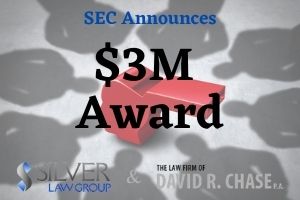 The SEC has awarded $3M to three different whistleblowers for assisting with three distinct covered actions in three separate orders.
The SEC has awarded $3M to three different whistleblowers for assisting with three distinct covered actions in three separate orders.
1. In the first order, the Claims Review Staff (CRS) awarded a bounty of $1.5 million to an individual who provided original information and voluntarily gave assistance to SEC staff that led to a successful covered action. Continue reading
 SEC Whistleblower Lawyer Blog
SEC Whistleblower Lawyer Blog


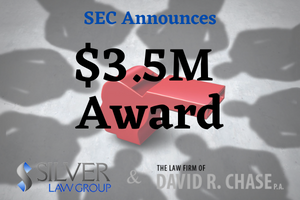 The SEC has again given an award to a whistleblower. This time it totals $3.5 million, and comes after multiple instances of support from the individual.
The SEC has again given an award to a whistleblower. This time it totals $3.5 million, and comes after multiple instances of support from the individual.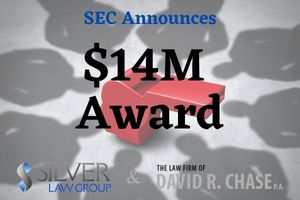 Most whistleblowers are keen to keep their activity concealed and private until the information becomes public. In an unusual twist, one whistleblower decided to publish a research report online detailing the fraudulent activity of a company and that of its CEO prior to notifying the SEC of the fraud.
Most whistleblowers are keen to keep their activity concealed and private until the information becomes public. In an unusual twist, one whistleblower decided to publish a research report online detailing the fraudulent activity of a company and that of its CEO prior to notifying the SEC of the fraud.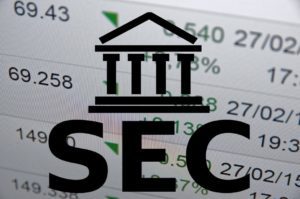 As we’ve
As we’ve  When it comes to legal terminology, there’s one term that is frequently discussed but little understood:
When it comes to legal terminology, there’s one term that is frequently discussed but little understood: 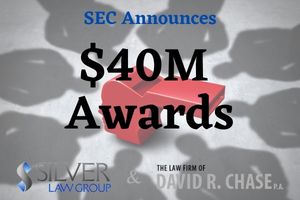 Through three orders, the SEC issued
Through three orders, the SEC issued 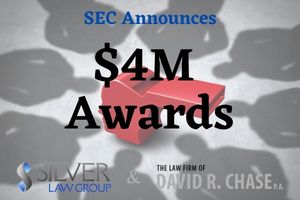 The Securities and Exchange Commission has kept busy, even through the holidays. On January 10th, 2022, the SEC put out a
The Securities and Exchange Commission has kept busy, even through the holidays. On January 10th, 2022, the SEC put out a  Both the Department of Justice (DOJ) and the
Both the Department of Justice (DOJ) and the  SEC Whistleblower attorneys Scott Silver and David Chase were recently the featured guests on ‘Cut To The Chase’ podcast to discuss the SEC whistleblower program and their work representing whistleblowers.
SEC Whistleblower attorneys Scott Silver and David Chase were recently the featured guests on ‘Cut To The Chase’ podcast to discuss the SEC whistleblower program and their work representing whistleblowers.